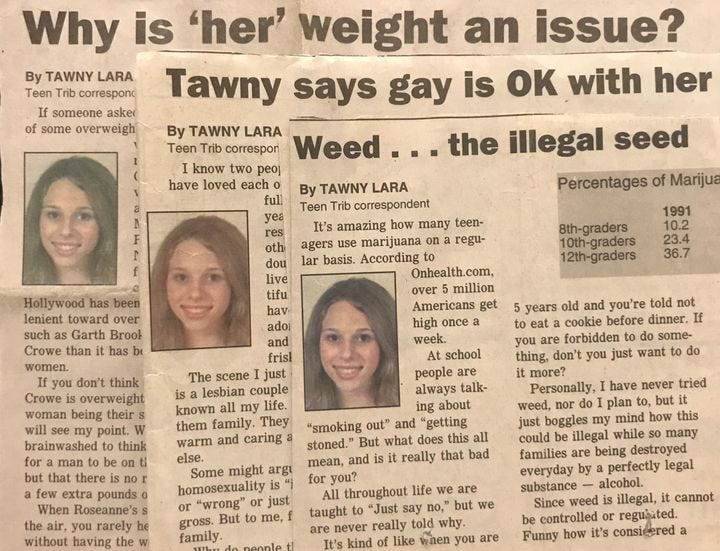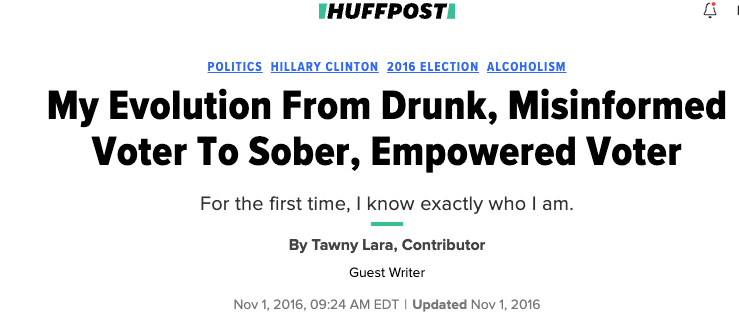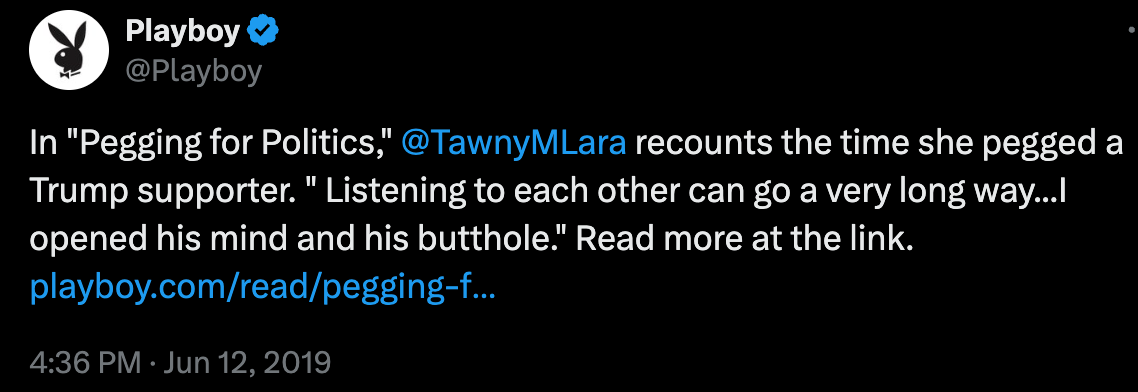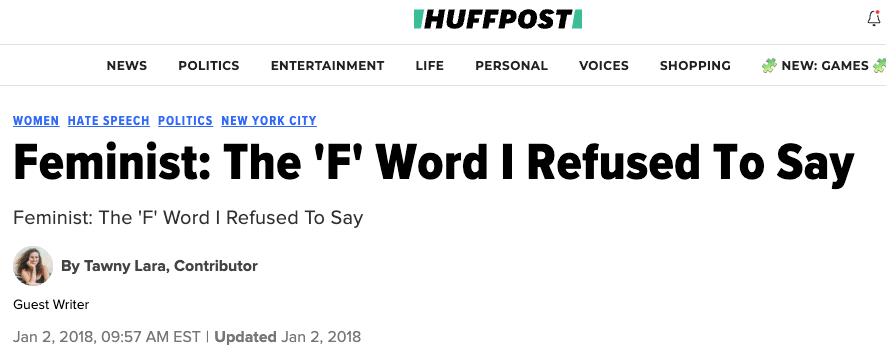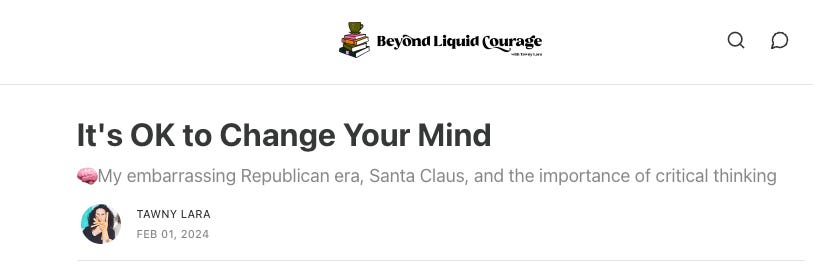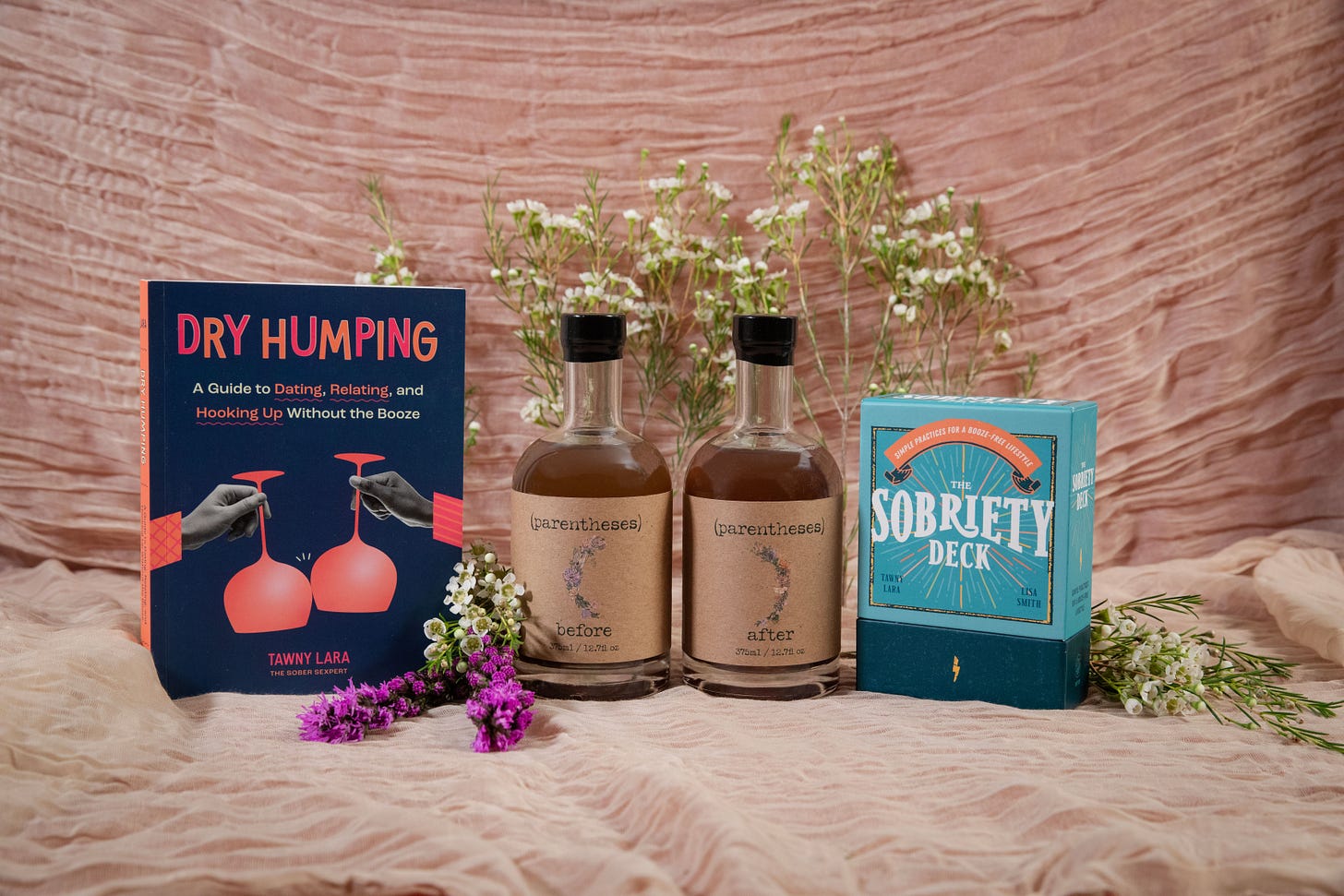Voting Republican, and Other Self-Destructive Behaviors
I'm proof that people can change if they want to do the work
My political identity has been all over the place because my personal identity has been all over the place.
I wrote about gay rights, feminism, and legalizing weed for my local Waco, Texas newspaper when I was 14 in 2000.
I protested George W. Bush in his hometown of Crawford, Texas in 2004.
I dressed as Tina-Fey-as-Sarah-Palin for Halloween in 2008.
I proudly put a Romney/Ryan sign in my front yard in 2012.
I used Obama’s face as a shooting target when Ted Nugent taught me how to shoot guns (Yes, this is a true sentence!) in 2012.
I attended the inaugural D.C. women’s march in 2017, asking women in MAGA hats why they voted for Trump.
If my political flip-flopping has your head spinning… same, girl.
Many of my life choices, until I moved to NYC and got sober in 2015, were in response to social conditioning, people-pleasing, and trying to fit in. The others were the real me that you know today. I’m sure you can discern which is which.
Today is an important day to share how it’s not only important to evolve as a human—it’s essential to evolve as a human.
Below, you’ll find excerpts from three political essays I’ve written over the years. While I give myself grace for past behaviors, I also give myself grace for growing as a writer. There are countless structural changes that I’d make to the following essays, but my thesis remains the same:
Evolve. Change. Think. Ask. Read. VOTE.
“For nearly 15 years, I self-medicated my depression and anxiety with drugs and alcohol. While dealing with the narcissism of depression and the side effects of substance abuse, I was too self-absorbed to empathize with anyone’s problems that didn’t directly involve me. That included my family, friends, and especially politics. Now that I’m almost a year sober, my growth as a person has amplified my political awareness. I always kind of knew who I was politically, but I was easily swayed into other camps ― just like I was easily swayed by any drug or drink that crossed my path.”
“The conversation impacted each of us. He admitted that he had formed opinions on issues that have never affected him so he never gave much thought to how said issues impact others. He didn’t use the word privilege but he seemed to grasp the concept. I gained some insight on what it’s like to be a straight, cisgender man in this political climate. I was also appreciative of my friend who showed me how to have a mature, productive conversation about politics instead of a circular debate that won’t get anywhere. Listening to each other can go a very long way. At least it did with us.”
“My mother raised me to respect myself. To know the names of my body parts. To let her know when I wanted to get on birth control. To stand up for myself when being cat called. She even bought me my first vibrator. Mom raised me to know that I had control over my choices. She taught empowering values without using the “f” word: feminism.
I never thought of the way my mother raised me as political. Now I see how politics are involved in almost everything.”
“It’s OK to change your mind. In fact, it’s essential. We change our minds by listening to new information with an open mind, remaining receptive to said new information, collating data by comparing that new info to the existing info that’s already stored in our brains, then, yes, possibly changing our minds. Or maybe doubling down on your original belief. Changing our minds is not a quick process, which is why so many folks don’t do it.
Think for yourself,
Tawny





